Half a Chance: Stories of Jewish Delawareans
Earning a Living: Business
The Talmud teaches that a father must teach his child a craft so that he can earn a livelihood. Providing for oneself and one's family is an important Jewish value.
In 1873 Nathan Lieberman owned one of the most prominent clothing stores in Delaware. In 1973, Irving Shapiro became chairman and chief executive officer of the DuPont Company. Each was a leading Jewish citizen of his day. The difference in their occupations reflects a century of change in American business.
After being peddlers, artisans, or laborers, many Jewish Delawareans open small retail businesses, which were the focus of an earlier exhibition. This section focuses on Jews in agriculture, manufacturing, and new ventures. Because Jews were not free to enter some businesses and because they had nothing to lose, they were often pioneers in new enterprises.
How did your family start out in America?
Maintaining Traditions Serving the Community Creativity is a Gift
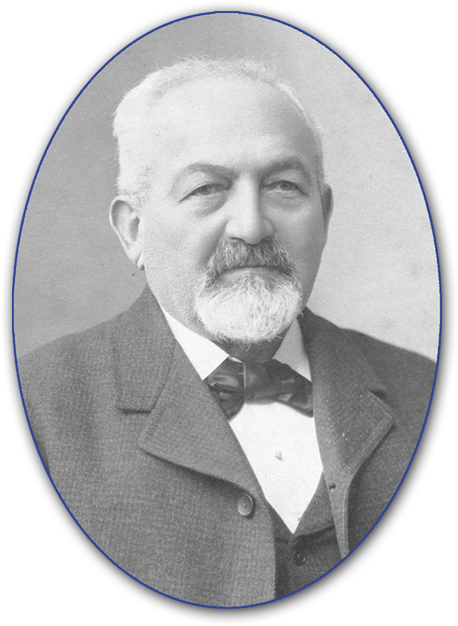
Nathan Lieberman
(Born 1836, Bavaria)
Nathan Lieberman was Wilmington’s outstanding Jewish citizen in the last third of the nineteenth century. In the 1870s his clothing store on the corner of Fifth and Market streets had the largest stock of clothing in the city and a selection as fine as anything in Philadelphia. In the 1880s, Lieberman sold the store and entered the real estate business.
Lieberman was actively involved in every Jewish cause of his day. He was one of the founders of the Moses Montefiore Society and its synagogue, Ohabe Shalom. When the first Russian Jews came to WIlmington in 1882, they were put in his care. From the 1870s until his death in 1906, he was active in the Knights of Phythias, a benevolent society.

Irving Shapiro
(Born in 1916, Minneapolis, Minnesota)
Irving Shapiro, son of immigrants, became chief executive officer of the DuPont Company, then the largest chemical company in the United States, in 1973. He was the first Jew and the first attorney to assume the position. Three years later he was selected as chairman of the Business Roundtable, an organization of the leading corporate leaders of America. Shapiro was inducted into the Delaware Business Hall of Fame in 1993 and received the Marvel Cup from the State Chamber of Commerce in 1997. Shapiro served as president of the Jewish Federation of Delaware, the Jewish community’s central fund-raising and planning organization, and of the Kutz Home.

Gerald Blum
(Born in 1927, Delaware)
When Jerry Blum began Take-A-Break in 1962, the idea of selling coffee to businesses so they could provide it to their employees was new in Delaware. After ten years Take-A-Break expanded into vending machines, then into water, filtration, and catering. Blum was instrumental in establishing the National Coffee Service Association and served on its board. In 1984, he received the Delaware Small Business Award.
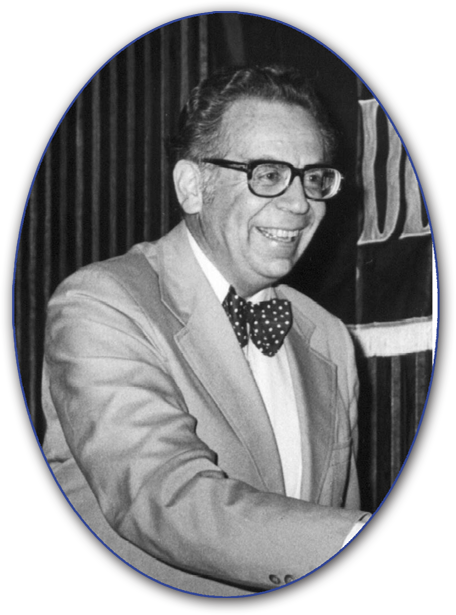
Nisson Finkelstein
(Born in 1925, Massachusetts)
Nisson Finkelstein founded ILC Industries, Inc., in order to design and build spacesuits for the Apollo program. The company was an offspring of the International Latex Company. Finkelstein also formed Inertial Motor in Doylestown, Pennsylvania, to help develop motors that drove the cameras used on moon landings. Finkelstein served as president of the Jewish Federation of Delaware, the Jewish community’s central fund-raising and planning organization. He was also president of United Way of Central Delaware and a director of the Urban Coalition.
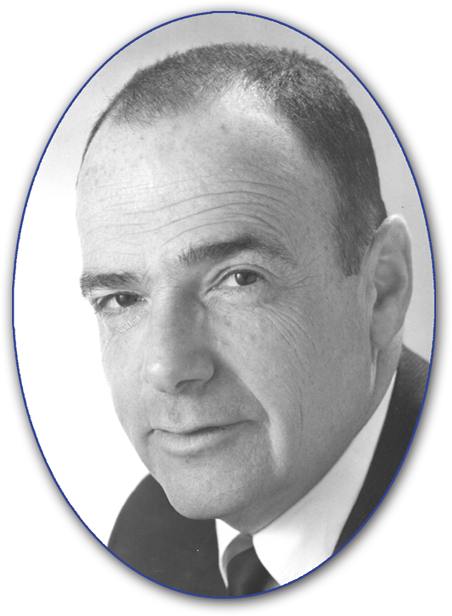
Marvin Gilman
(Born in 1922, New York)
Marvin Gilman was a life director and former chairman of the National Association of Home Builders (NAHB), our country’s oldest nonprofit, bipartisan citizens’ organization working to provide decent, affordable housing for all Americans. In 1984, he was inducted into the NAHB Hall of Fame. As an economist, lawyer, and president of Gilman Development Company, Gilman built residential and commercial buildings in Delaware and neighboring states. He taught at the University of Delaware in the College of Urban Affairs and Public Policy for 18 years and was appointed to the university’s board of trustees in 1995. In 1995 Marvin and his wife Muriel received the Josiah Marvel Cup from the Delaware State Chamber of Commerce.
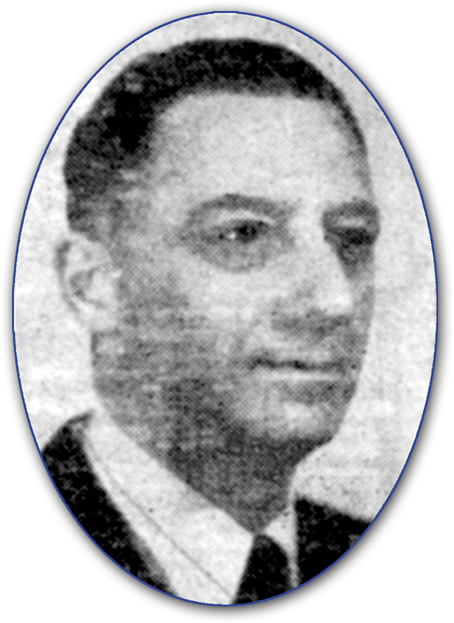
Emanuel Greenabaum
(Born in 1859, Missouri)
During the 1890s, the Greenabaum Cannery, founded by Emanuel Greenabaum and Charles Van Leer, was recognized as the largest pea-packing plant in the world. In1896 a fire destroyed the plant two weeks before pea-packing season, but the company rebuilt it, with modern improvments, in ten days. Peas were sold with the trademarks of Nanticoke and Sundale. Peaches, tomatoes, chow chow, and pickles were other popular products. Emanuel Greenabaum came to Seaford in 1882 and opened an oyster business. Five years later, he closed that business and opened the cannery.
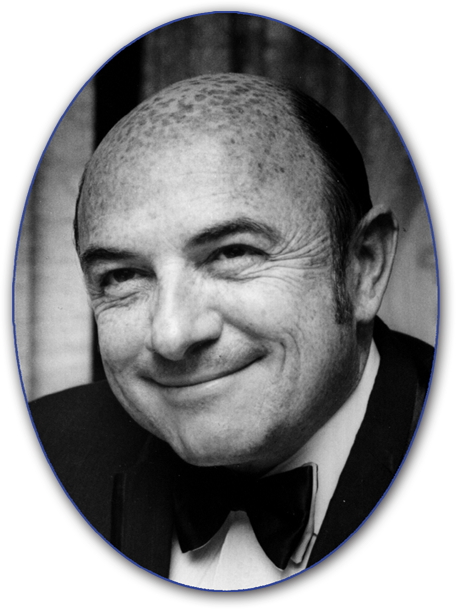
Albert Heisler
(Born in 1924, Wilmington, Delaware)
Albert Heisler was president and chairman of the board of the Delaware Barrel and Drum Company, a business started by his father Morris. When the Delaware Barrel Company merged with Container Corporation of America in 1946, Al Heisler became Divisional General Manager of Plastics. Heisler had begun working at Delaware Barrel in 1964 even before he graduated from college. He helped develop plastic containers and closures and held five patents.

Max Keil
(Born ca. 1883, Biecz, Galicia, Austria-Poland)
From the time of its opening in 1919, the Keil Motor Company at 11th and Tatnall streets was known for selling the newest items including Goodyear tires, air conditioners, stereos, and televisions. Max Keil emigrated to the U.S. circa 1900 and earned a living as a peddler and later as a liquor merchant. He brought six brothers and sisters to the U.S. Max, his brothers Isadore and Samuel, his son Leo, and his cousin Samuel Jacoby were all founders of Keil Motor Company. Max was a founding member of the Home Building and Loan Association in 1912. His second wife, Rose Kluger Keil, is featured in the Maintaining Tradition section.
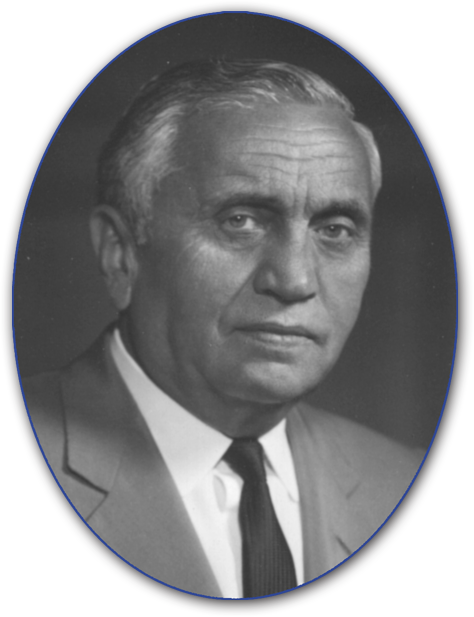
J.M. Lazarus
(Born in 1872, Russia)
Recognizing the potential of a discount store, J.M. Lazarus opened Wilmington Dry Goods at 418 Market Street in 1924. A marketing genius, Lazarus used newspaper ads to promote his business philosophy as well as his products. His ads, the largest in the Morning News when the store opened, changed the nature of advertising. His stores became beloved Wilmington landmarks.
In this newspaper ad, J.M. Lazarus emphasized that Wilmington Dry Goods would be closed because of a Jewish holiday. He wanted the Klu Klux Klan, which had recently held an initiation near Tybout’s Corner and a demonstration near Newark, to know that “we are not ashamed of our Jewish heritage.”

Harry Levin
(Born in 1928, Wilmington, Delaware)
Harry Levin’s keen sense of what the public wanted led him to the new idea of offering health and beauty aids at a discount. In 1962, he opened his first store on Marsh Road. Two years later, he expanded the business to Newark and added a pharmacy to the health and beauty products, another innovation. Today the Happy Harry’s drugstore chain includes 74 stores in Delaware, Pennsylvania, and New Jersey.
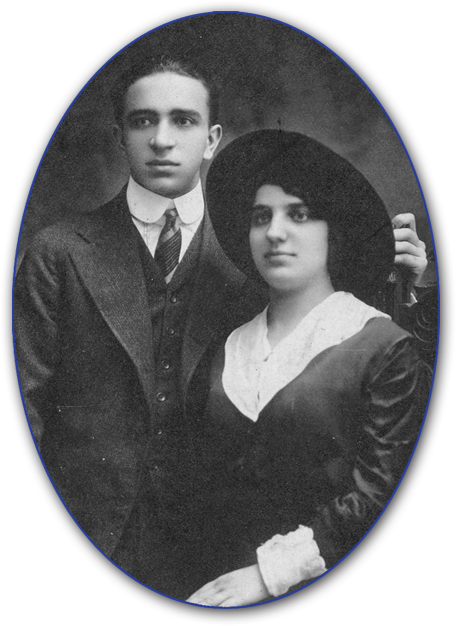
Dora and Jacob Markowitz
(Dora born in 1896 in Poland;
Jacob born in 1896 in Russia)
Dora and Jacob Markowitz purchased their farm in Canterbury in 1920 with the assistance of the Jewish Agricultural Society. The JAS, which was generously financed by the Baron de Hirsch Fund, attempted to help Russian Jews become Americanized more quickly by settling them on the land instead of in big-city ghettos. Neither Markowitz knew anything about farming. Both were milliners in New York before coming to Delaware. Their Delaware neighbors taught them everything they needed: planting, plowing, milking, bridling and saddling a horse. The Markowitz farm specialized in tomatoes and fruits before the Great Depression and then switched to truck farming. They raised a variety of crops and animals.

Pack Brothers
Michael born in 1904, New York;
David born in 1905, New York;
Manny born in 1907, New York;
The Sussex Poultry Company, founded and managed by the Pack brothers, became the largest automated broiler processing plant in the world. By 1945 it was the largest supplier of poultry to the armed forces. The five Pack brothers learned the business at their immigrant father Sam’s “Pack Live Poultry” in Queens, New York. Harry, Mike, and David Pack built the Sussex Poultry Company in Milford in 1941.
Michael Pack was invited to Palestine in 1945 to improve poultry husbandry and increase the food supply. In 1957, he shipped the original mating birds to Israel. Prime Minister Yitzhak Rabin acknowledged Pack’s contribution as the father of the broiler industry in Israel in 1994.
Manny Pack was an aeronautical engineer,a reserve officer in the Army Corps, and a member of the Civil Air Patrol near Milford. He joined the Sussex Poultry Company in 1946. Louis Pack joined the family business in 1947 after resigning his commission as a lieutenant colonel in the U.S. Army.
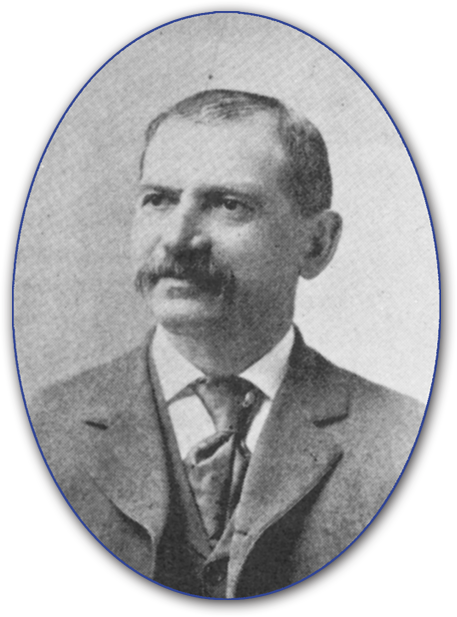
David Reis
(Born ca. 1847, Germany)
In the late nineteenth century, David Reis was the largest employer in Milford. He had come there in 1882 to open a branch of a Baltimore canning company. Reis achieved great success in canning strawberries, peaches, blackberries, and tomatoes. When he died in 1903, the Peninsula News and Advertiser said Milford had sustained an almost irreparable loss. It called Reis an “upright and just man and the best business man of the community.” He “always practiced the policy of aiding others to help themselves rather than giving alms.”
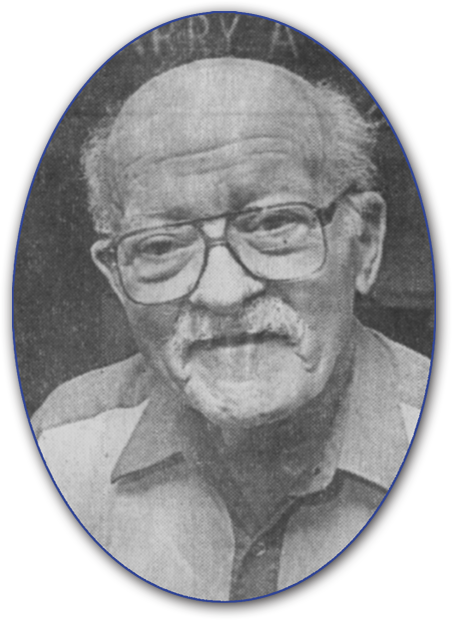
Harry Schagrin
(Born in 1900, Wilmington, Delaware)
Known as the “Carnival King,” Harry Schagrin supplied rides and prizes for the annual carnivals of the volunteer fire companies on the Delmarva Peninsula. In his travels, Schagrin saw a new gas cooking stove that used propane gas. Today Schagrin’s is one of the top 50 propane companies in the United States. He was a member of the Middletown Volunteer Hose Company for more than 65 years and served twice as president of the New Castle County Fireman’s Association.

David Snellenburg
(Born ca. 1872, Germany)
David Snellenburg, an ardent booster of Wilmington, tied the success of Snellenburg and Company, at Seventh and Market streets, to the city’s prosperity. A member of the Philadelphia Snellenburg family, he managed Snellenburg and Company for nearly 25 years from its opening in 1895. Begun as a clothing store, Snellenburg’s expanded to furniture, pianos, and a full department store. Snellenburg led so many civic and Jewish causes that he was given the title of “Wilmington’s first citizen.”
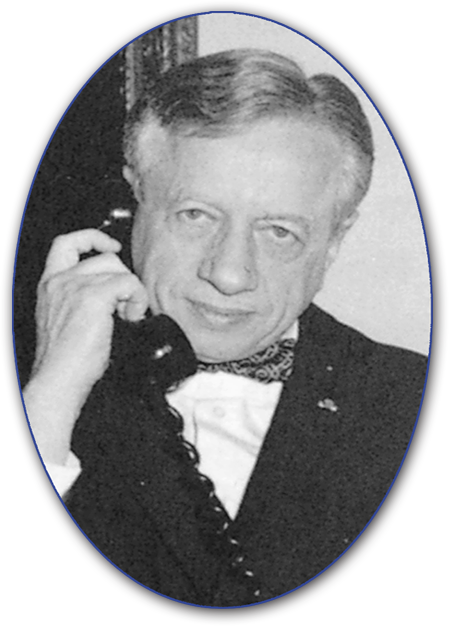
Abram N. Spanel
(Born in 1899, Russia)
Abram Nathaniel Spanel founded the International Latex Corporation, maker of girdles, bras, and infant panties, in 1932. The ILC plant in Dover had numerous innovations including air conditioning, a loud-speaker system, free Vitamin C for employees, health and life insurance coverage, and a profit-sharing plan. In 1944, Spanel was hailed by the U.S. War Department for returning more than $1.5 million, which his company had made on war contracts, as a contribution to the war effort. A prolific inventor, Spanel had over 2,000 patents. He was well known for paid editorial advertisements giving his views on national and international affairs in more than 100 news-papers around the country for nearly 40 years. As a philanthropist, he supported medical research, the state of Israel, and numerous other causes.

Max and Sadie Sydel
(Max born ca. 1883, Russia;
Sadie born ca. 1882, Poland)
Max and Sadie Sydel became successful farmers after a difficult adjustment to country life. They met in New York City where Max was a machinist. With the help of the Jewish Agricultural Society, they bought a small farm in Hartly in 1919. The soil was poor, they knew nothing about farming, and Sadie was unhappy with rural life, so they left after a few years. In 1925, the Sydels returned to a different farm in Hartly and were successful raising corn, wheat, and some chickens. Later their son Frank ran the farm and raised chickens and eggs that he shipped to New York. Today, Frank’s son Ian Sydel leases the land to Hillendale Farms for egg, butter, and cheese distribution.
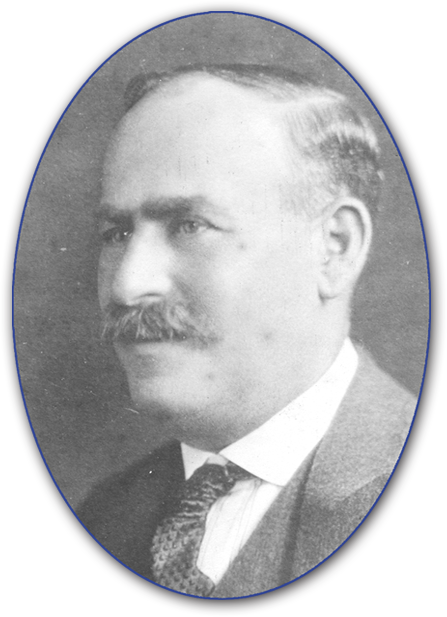
Louis Topkis
(Born in 1872, Russia)
Under Louis Topkis’ management, Topkis Brothers Underwear Company became the second largest underwear manufacturer in the United States. The company was formed in 1915 when the Delmarva Manufacturing Company of Smyrna, which Louis and his brothers operated, consolidated with the Diamond Manufacturing Company. As a young immigrant, Topkis went to night school while peddling from house to house during the day. In 1894, he opened the first of his businesses on King Street.
In addition to his business life, Topkis was an outstanding leader in community affairs. He chaired the 1908 campaign to build Adas Kodesch. He helped organize the Hebrew Charity Association and served as vice president for 10 years. He also chaired the Jewish War Relief Fund in Delaware several times, and served as president of the local American Zionist Organization.
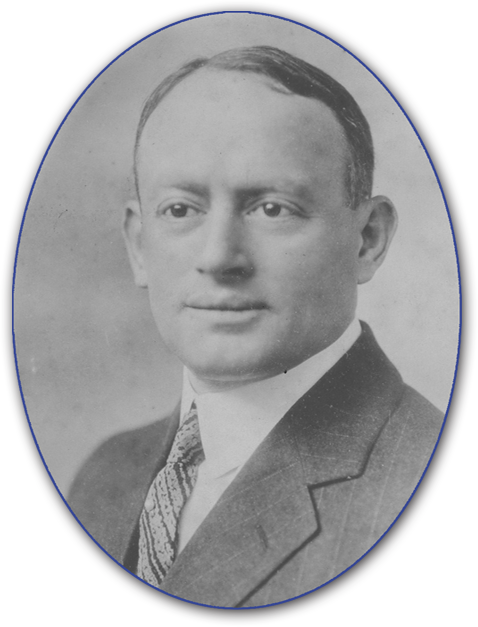
William and Charles Topkis, James Ginns
(William born in 1878, Russia;
Charles born in 1882, Pennsylvania;
James Ginns born ca. 1874, Russia)
Always alert to new opportunities, brothers William (right) and Charles Topkis and their brother-in-law James Ginns entered the moving picture business when they opened the Majestic Theatre in Wilmington in 1911. Four years later, the Topkis-Ginns syndicate, known as the Wilmington Amusement Company, opened the Queen Theatre, which was praised for its beauty and opulence, at Fifth and Market. They also owned the Arcadia and Garrick theatres. In 1925, they sold their theaters to Warner Brothers. Other family members including Oscar Ginns, David Topkis, and Benjamin Schwartz also owned movie theaters.
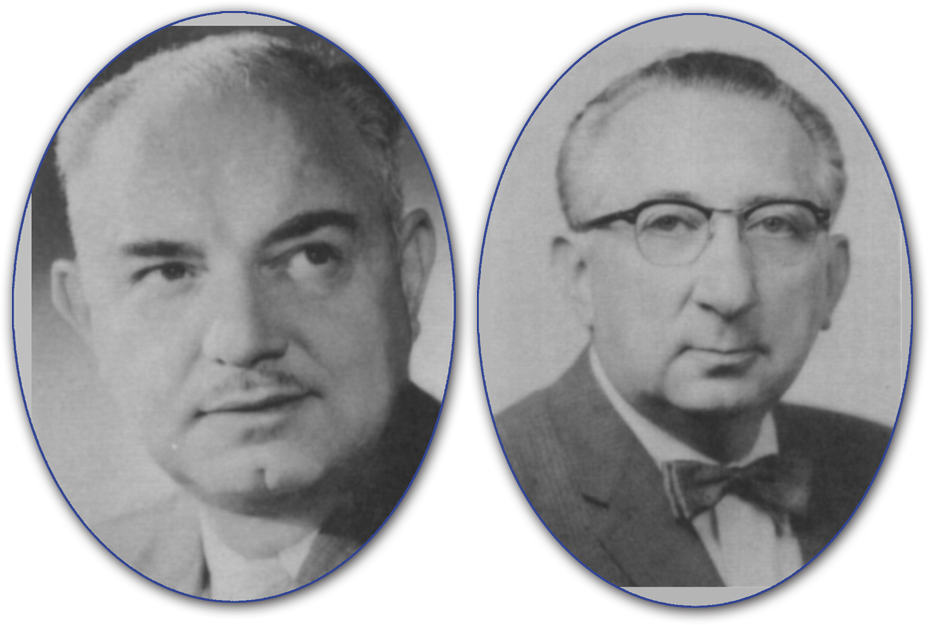
Sol and James Zallea
(Sol born in 1910;
James born in 1907;
both in Philadelphia, Pennsylvania)
Zallea Brothers became the largest manufacturer of expansion joints in the world after World War II. Jim Zallea held the patent for expansion joints, which are metallic bellows used in pipelines to prevent pipes from bursting by absorbing the pressure of expansion and contraction due to changes in temperature. When brothers Sol and James Zallea moved their metal fabricating business to Wilmington in 1939, the company welded valves for battleships and built heat exchangers. In 1942, the company was recognized for 100% employee participation in the drive for war bonds. Sol was president of the National Expansion Joint Manufacturers Association and President of the Jewish Federation of Delaware, the Jewish community’s central fund-raising and planning organization.